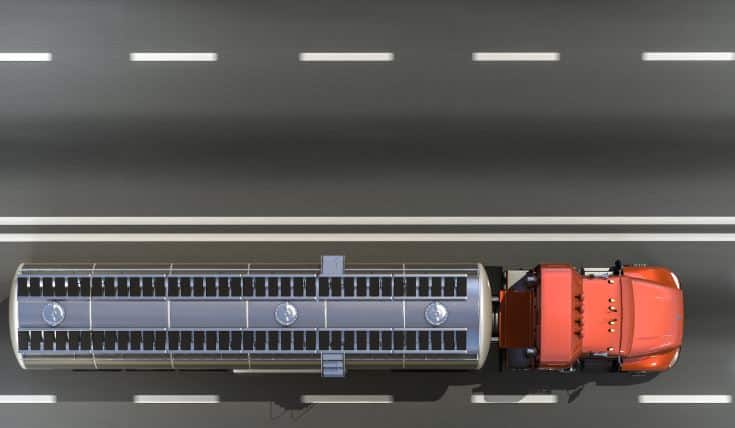It wasn’t long ago that innovations like smart phones, social media, the cloud, and 3D printers didn’t exist. With technology advancing at an exponential pace, we can expect major disruptions ahead for all industries. There have been many new innovations in the trucking industry over the past few years, but the best is yet to come. In 2018 and beyond, be prepared to see more cutting-edge technology emerge in the transportation field.
Electric Trucks
Many truck manufacturers have announced that they are working on a new era of trucks – electric trucks (electrek). Electric trucks are lighter, cheaper to drive than current semi-trucks, and do not generate tailpipe emissions, which is a step toward more sustainable urban development (Fortune).
Tesla recently introduced its all-electric truck, the Tesla Semi. This “truck of the future” places the driver in the center of the cab as opposed to the typical right or left side. Tesla is known for its slick, minimalist designs and the Tesla Semi is no exception. The only protrusions of this aerodynamic truck are the side mirrors and sensors placed on the rear end of the truck (Trucks.com). Several large companies have already placed orders for the Tesla Semi, including Walmart, J.B. Hunt Transport Services, and Meijer (CNN).

Tesla Semi (Photo: Tesla)
Elon Musk, Tesla CEO, stated, “We believe the Tesla Semi will deliver a substantial reduction in the cost of cargo transport, while increasing safety and making it really fun to operate.” Tesla has promised 20-percent savings in per-mile operating costs, making the vehicle that much more appealing (TheDrive).
You can expect to see electric trucks evolve more this year with more companies trying to beat Tesla to the market, such as trucking startup Thor Trucks, Daimler, Cummins, and Toyota (The Verge, Engadget).
Advancements in Driverless Technology
According to CNN Tech, the U.S. House of Representatives unanimously passed an autonomous vehicle bill in September of 2017, signaling broad support for the emerging technology (CNN Tech). Through artificial intelligence, these vehicles will be able to correctly evaluate road conditions, learn through vehicle-to-vehicle communication, and have the potential to become better drivers than human operators (stfalcon). Tesla’s electric trucks mentioned above will be equipped with autopilot features that can catapult the idea of driverless tricks into reality.
Driverless technology will decrease the need for sleeping and rest breaks, which could lead to almost double the productivity per asset and halve the transit time. As a result, driverless trucks will enable faster deliveries for customers than ever before. Along with Tesla, companies like Waymo, General Motors, and various software startups are continuing to develop and test self-driving technology, putting the industry increasingly closer to a new autonomous reality.
Just this month, San Francisco startup Embark successfully completed a coast-to-coast test drive of its autonomous semi-truck—covering approximately 2,400 miles of highway without relying on a human driver. Embark does not manufacture its own vehicles, but created a self-driving system that can be integrated into other vehicles. They plan to acquire 40 more semis throughout the year for more testing and long-haul deliveries (CNBC). Driverless vehicles have been a topic of conversation for years. While the technology is getting close, we may still be 10 or more years away from a driverless future.
Blockchain for Trucking
Blockchain is a distributed database that allows users to track and trade virtually anything of value. Originally developed for use with Bitcoin digital currency transactions, blockchain technology allows users from any location to add records to a system, contributing to a shared information trail.
So, what are some ways that blockchain may impact trucking? One example is when trucks get sold for the second time.Both the carriers purchasing a truck and the shippers using it to move their shipments may have questions about how this vehicle was used in the past. Since blockchain transactions are immutable and transparent, all parties involved in a transaction can be sure that the information about the truck is trustworthy (stfalcon).

